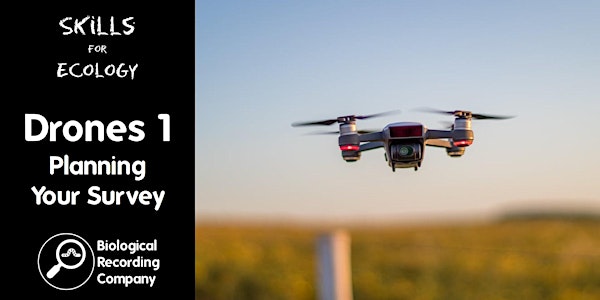
Drones 1: Planning Your Survey
Learn about using drones to survey habitats and landscapes for ecological projects.
By The Biological Recording Company
Date and time
Friday, November 29 · 2:30 - 4am PST
Location
Online
Refund Policy
Refunds up to 7 days before event
Eventbrite's fee is nonrefundable.
About this event
- 1 hour 30 minutes
Organized by
The Biological Recording Company provide a range of events focused on educating and training biological recorders and biodiversity professionals in the United Kingdom.
- entoLIVE Webinars are free 1-hour virtual events exploring the science of insects and other invertebrates. Each webinar will feature an invertebrate scientist and are suitable for adults of all abilities – a passion for invertebrates is all that’s required!
- Virtual Symposiums explore a subject in more detail through a series of talks from subject experts. These longer events have a small charge and are often available with an 'earlybird' discount.
- Field Recorder Days are 1-day events where experienced and novice recorders come together to record the wildlife of a site. Records are generally collated through iRecord and shared with the site manager, Local Environmental Record Centre and relevant National Recording Schemes/Societies.
- Earthworm Training Courses cover topics such as biology, ecology, sampling techniques and identification.